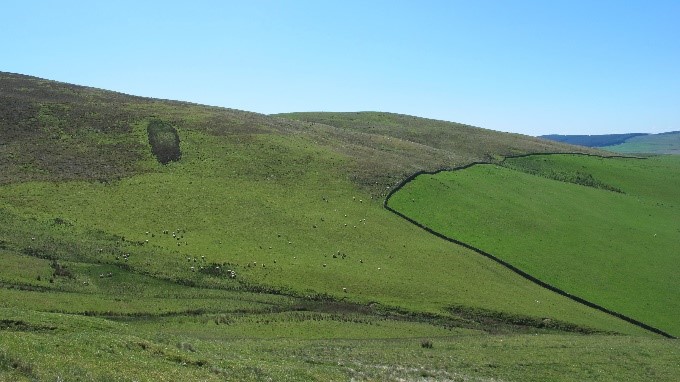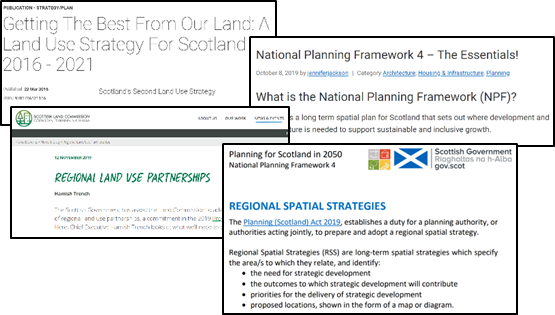Bridging the national and local in landscape decision making
Building effective regional partnerships that deliver on climate policy objectives
There is great potential for the land sector to help meet ambitious climate change mitigation and adaptation targets. But the current picture is often one of disjointed policies and a lack of coordination between national and local levels.
Scotland is pioneering a new approach to address this challenge through the development of new Regional Land Use Partnerships (RLUPs) in order to deliver the land use decisions needed to meet the 2030 and 2045 climate targets. These new institutions have the potential to be innovative in approach, but their success will depend on addressing significant questions, for example surrounding how they relate to existing institutional structures, the powers and tools they have to influence land managers, and how they use data.
Listen to Leo Peskett talk about the project
This is a ‘live’ and fast moving landscape decisions process, and as such, the research translation activities will be demand-led based on the needs of end users. I envisage two main phases of work during the Fellowship. The first will involve synthesising and translating the research undertaken as part of the Commission process (reporting its high-level findings to Ministers in September 2020), as well as other relevant landscapes decisions research, on the form and function of RLUPs. Currently there appears to be a lack of clarity, particularly among potential implementers (e.g. local authorities) over how RLUPs might work and relate to other parallel processes such as planning reform. Through close collaboration, I hope to be able to help clarify how the partnerships could work in practice.
The second phase will involve more direct collaboration with some of the ‘early adopter’ RLUPs. It is likely that RLUPs will develop at different rates across Scotland and with different institutional models. By working with a small group of RLUPs I will aim to support them with research translation to inform how they design and implement decision-making processes, and share best practice with emerging partnerships.
Coordinated national and regional level land use planning is still relatively rare internationally. This work will give practical insights into its implementation that will provide learning for the wider UK and beyond.


